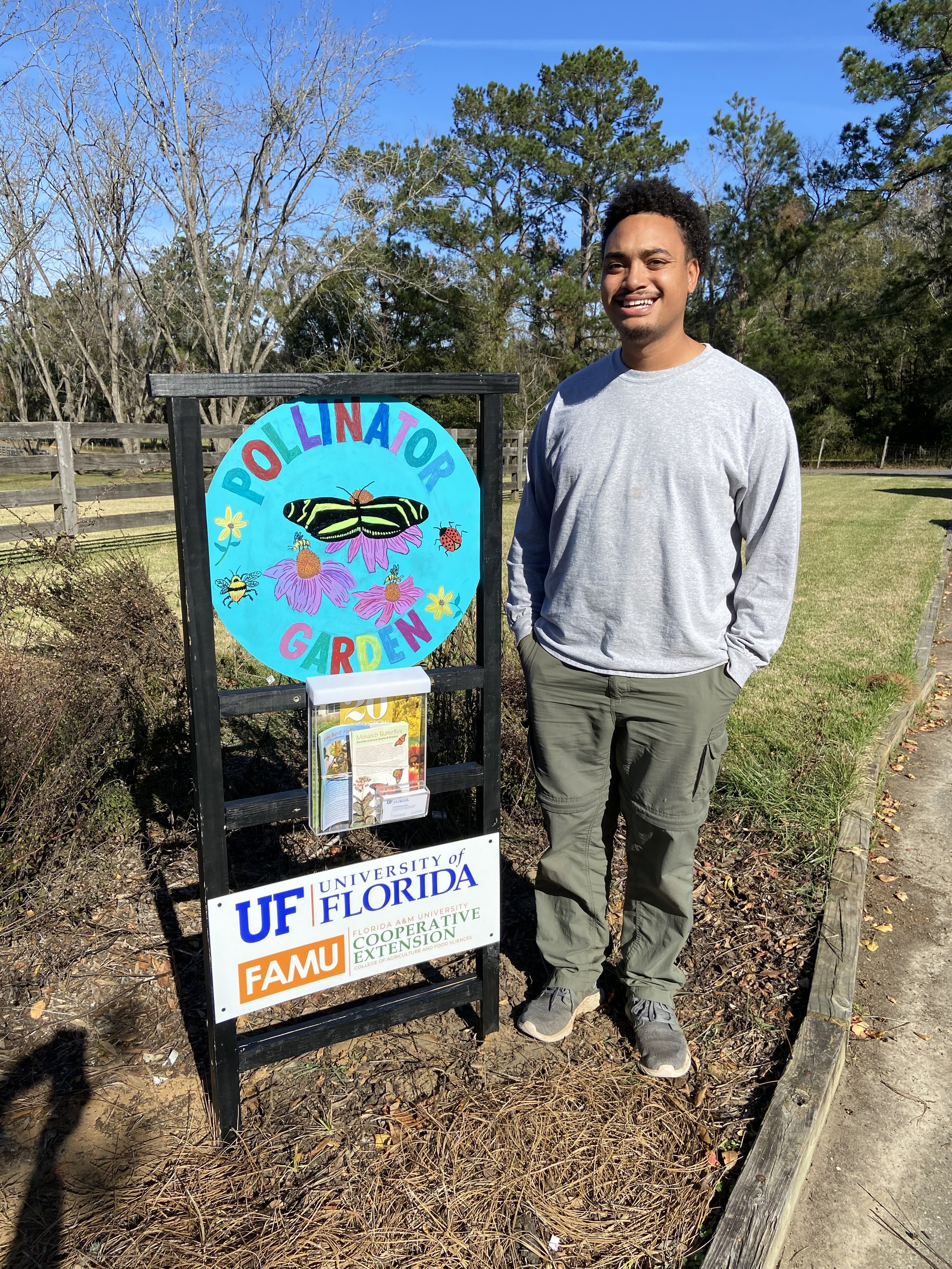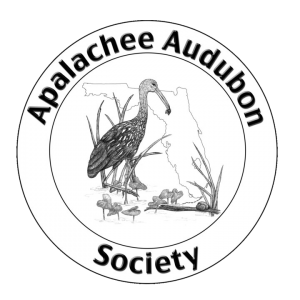In March 2023, Apalachee Audubon awarded two grants of $500 each to the Jefferson County Extension Office. The two projects were consolidated into a single garden. Here is the report by Extension Agent DeAnthony Price on how the money was spent.
Jefferson County Pollinator Teaching and Demo Garden
Extension Agent DeAnthony Price with the new sign for the garden that was designed and created by a group of volunteers.
In March, the UF/IFAS extension office was awarded a grant from the Apalachee Audubon Society to install a pollinator garden at the Jefferson County Extension Office. The goal of the pollinator is to educate the community on the importance of pollinator and native pollinator plants. The pollinator garden is a demonstration site encouraging community members to plant more pollinator plants in their home landscape. A pollinator garden at home is fantastic because it attracts and supports essential pollinators like bees, butterflies, and hummingbirds. These pollinators help fertilize flowers, leading to better fruit and vegetable production in your garden. Plus, it’s great for the environment.
Pollinators are essential for our ecosystem. Pollinators play a crucial role in the reproduction of plants by transferring pollen from the male parts of a flower to the female parts. This process allows plants to produce fruits, seeds, and new plants. Many plants would struggle to reproduce without pollinators. This can lead to a decline in biodiversity and the availability of food sources for other food sources. Pollinators are like nature's superheroes.
The garden consists of over 50 different pollinators and native plants. Planting more native pollinator gardens is super important. Native plants adapt well to the local environment, making them easier to grow and maintain. Pollinators and native plants have an extraordinary relationship. Native plants offer nectar, pollen, and shelter that are specifically suited to the needs of native pollinators. By Planting native flowers, one is creating a haven for these vital pollinators, increasing biodiversity, and ensuring the health of our ecosystems.
Edible herb garden
The pollinator garden includes an herb garden. The herb garden aims to educate community members about edible landscaping and pollinator herb plants. Edible landscaping can allow one to produce food using sustainable agricultural practices that conserve water, protect water quality, provide wildlife habitat, and reduce chemical inputs. Planting herbs in your garden is a great idea. Herbs like basil, rosemary, and mint can attract beneficial insects to your garden and repel pests. Herbs are easy to grow and can be used in cooking, teas, and even for natural remedies.
The garden includes a small pond demonstrating a healthy aquatic ecosystem in home landscapes. Creating a pond is an excellent addition to your pollinator landscape. They provide a water source for pollinators like bees and butterflies, which is essential for survival. Pollinators need water to stay hydrated, especially during hot and dry weather. Having a pond in your garden can attract various pollinators and create a habitat for them to thrive. A healthy aquatic ecosystem can help manage water by reducing runoff and filtering pollutants.
View of the garden pond





